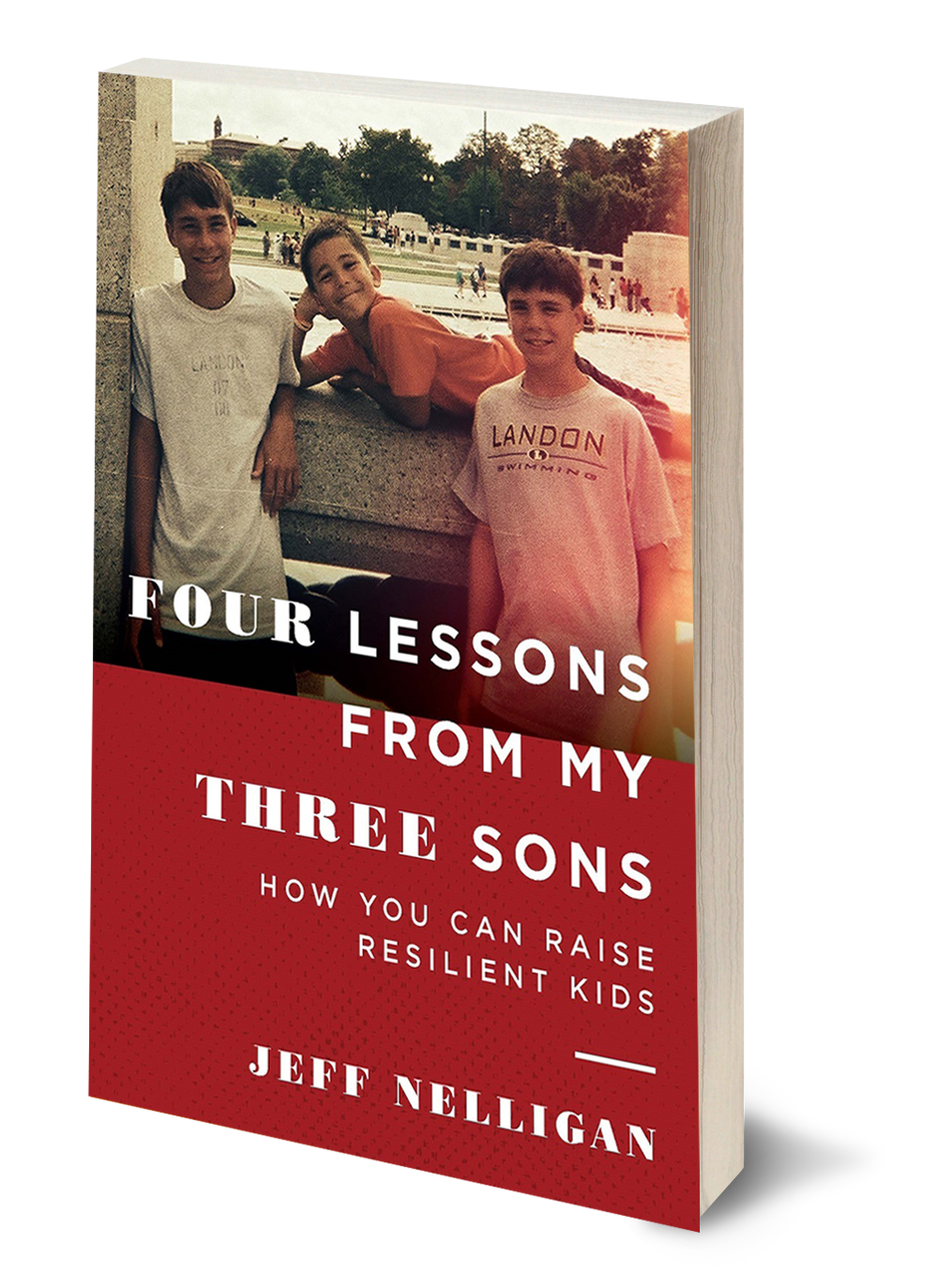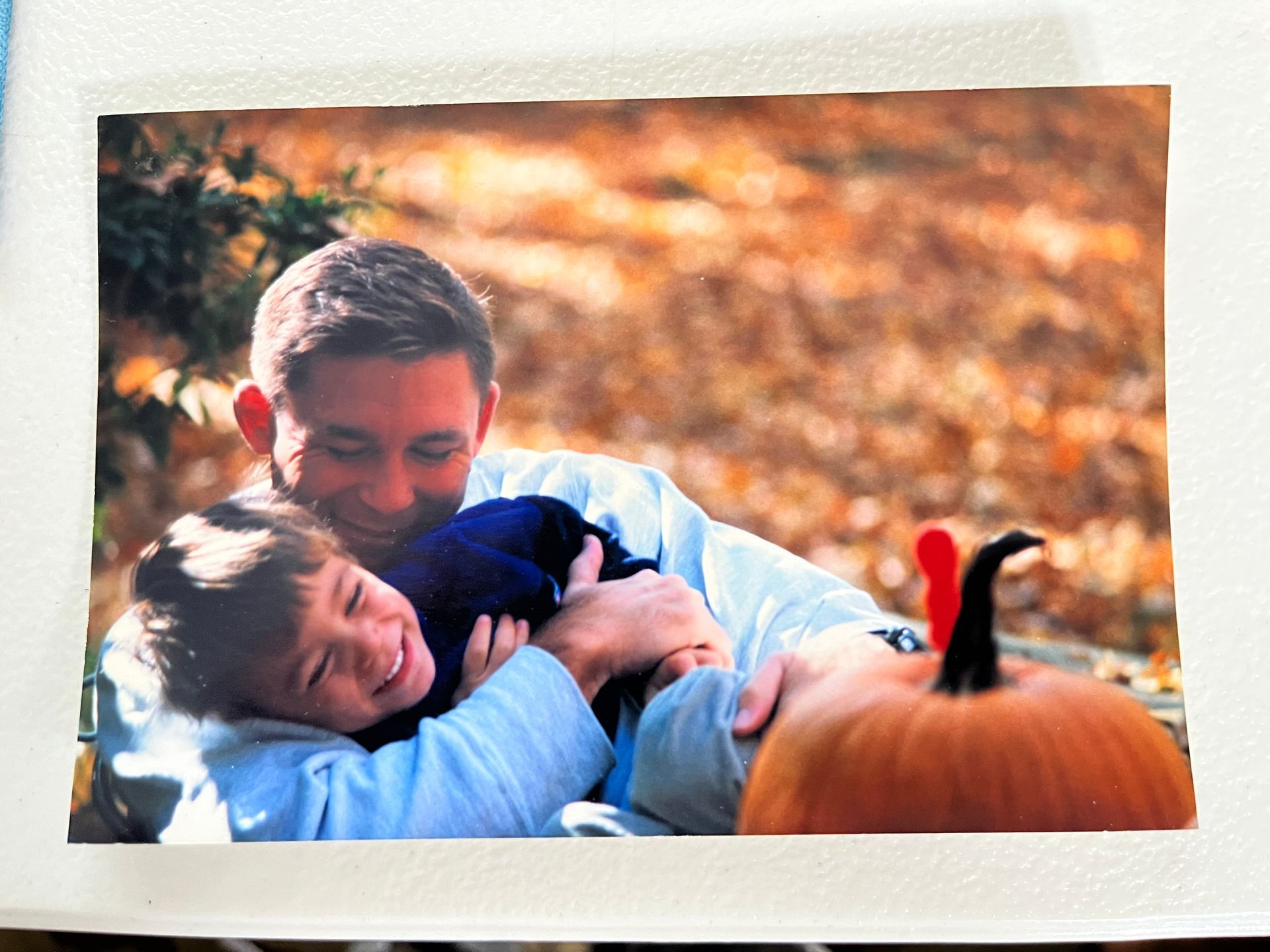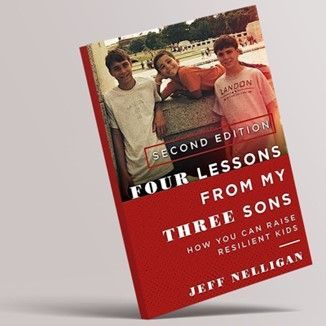How to Guide Your Son: The Saturday Morning Bleacher Report
Jeff Nelligan • September 16, 2019
Dad-to-son conversation - in solitude.

In the previous post, I gave you the Map, a basic starting point for developing the methodical son, the one who is prepared and reliable and ready.
Next up is the harder and more rewarding task: How to go about guiding your son.
Perhaps you already believe you are. Then humor me.
Developing the confident and resilient kid requires setting a baseline on you will go about explaining virtues and good behavior and right from wrong. No amount of random exhortations is going to do that. When my three boys were young, I knew it would be crazy to think I could simply tell them at regular intervals, “Hey boys, listen up. You need to be good kids, tenacious and strong and honest. No joke – the old man means it. Now, pass the salt.” C’mon man, no reasonable Dad operates that way. Kids at any age hear that refrain and roll their eyes. I would.
Nor can you leave it to chance, waiting for the right moment. You’ll never find it. And what will happen? The cruelest outcome of all”: The culture will shape your kid.
Hence, how you go about articulating these concepts – as I said, the virtues - conviction, effort, resilience - is just as important as what you say. You gotta have a plan. And the following is mine.
Beginning when the eldest was in third grade, I took great care in explaining to each kid individually in the simplest terms possible, the basic qualities to which I wanted them to aspire. How and Where was key: They were too young for high-sounding lectures on integrity, self-assurance, and aspirations. No kid is going to understand that stratospheric approach. Plus, you must have your son’s full attention. This rules out a room in the house or the back¬yard porch or a restaurant or a shopping mall or the front seat of a car. I settled on an ideal place of peace and quiet, one with no distractions: A Saturday morning in the bleach¬ers fronting the fields of our local high school. It was a poignant venue. I had their rapt attention and they had mine.
As we sat together, I would engage them first with sim¬ple conversation about easy subjects from their everyday life. Then, I’d gently guide the talk to many of the situa¬tions in my book – handling adversity, listening to others, being of good cheer, reading the crowd. In fact, these talks became a fond ritual – not every week or even every month for each kid, but timed to be relevant. Indeed, these meet¬ings persist to this day; the eldest kid and I were in the bleachers not two months ago between his overseas deployments. What started at age 6 was being played out 18 years later.
My book is full of examples of judging others. In fact, there are no judgment-free zones in my life or in anyone’s life, yours included. I don’t live in equivocation city, a suburb of the temporizing, hand-wringing, oh-let-it-go-this-time enabling world.
When my boys and I were out and about in the real world I genuinely treasure, my head was always on a swivel seeking allegories and metaphors in everything and everyone. I was relentless in acknowledging good and bad and doing so in mostly comic fashion.
Virtually everywhere we went, from the most pedestrian places to the most exciting, we’d play the game. What do you see? Who is doing what? Who is hot and who is not? “Take in all the folks around you, measure them. Which one would you trust? Who is sketchy? What did that person do wrong? What did that other person do right?” You need to impress upon your son these opportunities in the arena all around us. By judging, you’re making your kids think.
I never, ever stopped judging and demanding that my kids absorb the world around them. None of the sayings found in the book was a one-time deal. And no, I didn’t get through to the boys all the time. In order for my principles to be absorbed, they had to be sustained, over days and weeks and months and years. I know boys and I know that the same situations in their lives are repeated over and over again. I was dogged – I made sure to make every moment count.
Finally, it cannot be said enough so I’ll say it again: You’re the Dad. You’re the leader. You’re in control. Kids don’t know best. You do. Every father has the experience of being a young boy, knows the ups and downs, the everyday and the extraor¬dinary, what works and what doesn’t. So tell him about it.
As I say in my book, this life and world offer up countless situations for anyone paying attention. I used that world to build confidence, resilience and ambition in my sons, and it that has led them through the Naval Academy, Williams, and West Point. They developed the way they did because they knew right from wrong, good from bad, how to navigate and hold on through tough times and develop the resilience that is manifest today in the three hemispheres in which they lead men and women.
ABOUT THE BOOK
Every Dad in America wants to raise a resilient kid.
Four Lessons from My Three Sons charts the course.
Written by a good-natured but unyielding father, this slim volume describes how his off-beat and yet powerful forms of encouragement helped his sons obtain the assurance, strength and integrity needed to achieve personal success and satisfaction. This book isn't 300 pages of pop child psychology or a fatherhood "journey" filled with jargon and equivocation. It's tough and hard and fast. It’s about how three boys made their way to the U.S. Naval Academy, Williams, and West Point – and beyond.











